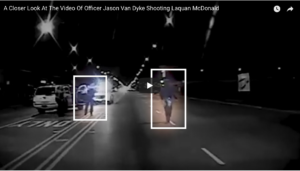Mondays with Mike: They did the right thing
October 8, 2018 • 7 Comments • Posted in Mike Knezovich, Mondays with Mike, politicsLast week I wrote a little about the trial of a Chicago Police Officer named Jason Van Dyke. He shot a 19 year-old named Laquan McDonald 16 times and was charged with first degree murder plus other lesser charges.

I included a link to the dashcam video of the killing. I’m not going to include it here, and I’m never going to look at it again. It was the cornerstone of the trial, one that made it impossible to buy explanations or excuses for the shooting.
Chicago police have an incredibly difficult job—in many ways, we leave them to deal with what our leaders fail to deal with and we fail to deal with as an electorate. My interactions with the local bicycle cops and beat walkers has always been nothing but friendly.
But there’s a long history of less than fair or friendly interactions with citizens in other neighborhoods. It dates back decades—in my lifetime there has been the horrific John Burge torture regime, which future Mayor Richard M. Daley overlooked when he was Cook County District Attorney. Throw in an alarming number of false convictions over the years, and it’s not unreasonable to conclude that black people in the wrong place at the wrong time have a harder time getting a fair shake than I do. That’s on all of us.
Last week, the jury in the Van Dyke case delivered a verdict. I can’t say I’m happy about their guilty verdicts on 2nddegree murder, plus 16 lesser charges. I hate to see anyone go to jail and have their lives and their family and friends’ lives changed forever. And McDonald is still dead.
I can say that after listening to the jurors talk about the trial after the verdict, I was heartened. They took their jobs seriously. They took each other seriously and listened to one another. They answered questions articulately. They were proud of their service. They were not sensational.
I was proud of my fellow citizens, because they—in my view—delivered justice.



